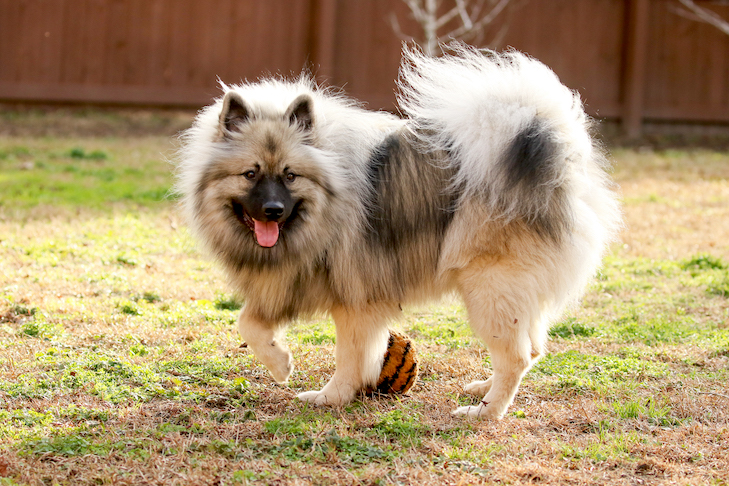Can Dogs Eat Octopus? Here’s what you should know

You may be thinking about giving your dog octopus if you want to feed them something different. Can dogs eat octopus, and will your dog enjoy it as a snack or not? This is important for you to know.
Small portions of properly prepared octopus are safe for dogs to consume, just like salsa. It is rich in iron, copper, selenium, omega-3 fatty acids, and numerous vitamins. It’s regarded as a fantastic, healthful dish that you can occasionally have for your dog’s wellbeing. But there are several things to be mindful of when it comes to octopus’s cooking methods, seasonings, and frequency.
Table of Contents
What Is the Safe Dog Weight for Octopus?
Your dog shouldn’t eat octopus on a daily basis. Nonetheless, occasionally giving your dog about 100 grams of cooked octopus may help their nutritional status.
Dogs’ benefits from octopuses
Your dog will benefit greatly from eating octopus when you prepare it properly for their nutritional profile! Among the most prominent ones are:
Dogs’ Health Benefits from Octopus
When served in moderation and cooked correctly, octopus can provide dogs with a number of health benefits. Octopus contains nutrients that are necessary for supporting several elements of a dog’s general health.
The high protein content of octopus is one of its main advantages for dogs. Since octopus is a lean protein source, its fat content is low. Dogs who consume this lean protein will have more energy and a stronger, more muscular body.

Octopus is high in healthy lipids, including omega-3 fatty acids. These fats are essential for keeping a healthy heart, strengthening the immune system, decreasing cholesterol, and facilitating better digestion in addition to helping dogs’ coats.
The general health and wellbeing of your dog depend on omega-3 fatty acids.
Additionally, octopuses are a great source of vitamin B12, which controls digestion and promotes healthy red blood cell growth. For dogs, this vitamin is essential to the upkeep of a healthy neural system.
In addition, octopus contains important elements like calcium, phosphorus, and iron. Iron aids in the blood’s oxygen delivery, and calcium and phosphorus are essential for strong bones and teeth. The general skeletal health of a dog can be enhanced by these minerals.
What Takes Place When a Dog Consumes Too Much Octopus?
If your dog consumes a lot of octopus, the high fat content in it may cause digestive issues for him, resulting in diarrhea, vomiting, and lethargic behavior.
Improved physical and mental well-being
Because octopus contains a large amount of omega-3 fatty acids, its benefits for brain and body health are paramount. There is never too much omega-3 in your dog’s diet if they are elderly or prone to joint and brain health problems!
Strength of muscles and bones
Octopus will strengthen your bones and muscles, giving you plenty of chances to experience well-defined muscles and sturdy, dependable bones. This is because these lanky animals naturally contain phosphorous. This is a terrific way to maintain the strength of the body in active and nimble canines.
High iron level in octopuses is what helps to replenish energy and encourage improved cell health. Supplementing your dog with iron will be quite beneficial in helping them stay up to date with anything you need as they become older and start to notice that their energy reserves are dwindling.
Potential Choking Hazard
The choking hazard is one of the possible risks associated with feeding octopus to dogs. If octopuses aren’t properly prepared before feeding, their harsh beaks and tentacles could suffocate a dog. To reduce the danger:
- Take out the beak and any tough sections.
- Chop the octopus into bite-sized pieces that are easy to chew.
- Keep an eye on your dog during feeding to make sure they don’t choke.
How Can You Cook Octopus for Your Dog in a Safe Way?
Before giving the octopus to your dog, make sure it is thoroughly cooked. Without adding any spice, you can boil, steam, or broil the octopus before serving it to your dogs. A fast suggestion for serving grilled octopus to your dog is to chop it up and combine it with their usual chow.
Important Information
Even if you feed your dog octopus with the utmost caution—as previously mentioned—you may still end up with a revolt. It could be that your dog has an octopus allergy! Alternatively, they have overindulged and are managing a reaction to mercury or sodium.
If it comes to that, you should watch for your dog’s response so you can provide him with the assistance he requires. Symptoms of an issue frequently consist of:
- Throwing up
- Constantly belching
- Sucking
- Scratching or itching
- Sneezing
- Swollen eyes
- The diarrhea
- Face swelling Overall uneasiness
Your dog is more likely to respond negatively the more of them you notice. Take your dog to the vet as soon as you observe these signs so they can take action and perhaps save their life!
Make sure you record the amount of octopus your dog consumed, along with any additional seasonings or ingredients. If your veterinarian asks you a question, you must answer honestly because providing incorrect information can complicate their ability to treat you and your pet in a timely manner!
Quick Facts About Dogs And Octopus
• Octopus is a nutritious seafood that can provide dogs with protein, omega-3 fatty acids, iron, and other vitamins and minerals. These nutrients can support your dog’s health in various ways, such as improving their joint, heart, brain, and digestive functions.
• Octopus should be cooked thoroughly before feeding it to your dog, as raw octopus can contain harmful bacteria and parasites that can cause infections and illnesses. Cooked octopus should also be unseasoned, as salt, spices, and oils can upset your dog’s stomach and lead to dehydration, diarrhea, or vomiting.
• Octopus should be given in moderation, as too much octopus can cause problems such as mercury poisoning, sodium poisoning, or obesity. Mercury and sodium are naturally present in octopus and can accumulate in your dog’s body over time, causing damage to their organs and nervous system. Octopus is also high in calories and fat, which can contribute to weight gain and related health issues.
• Octopus should be cut into small pieces and supervised while your dog is eating it, as octopus can be tough and chewy and pose a choking hazard. The tentacles of octopus can also stick to your dog’s mouth or throat and cause suffocation. If your dog shows any signs of choking, such as gagging, coughing, or pawing at their mouth, seek veterinary attention immediately.




